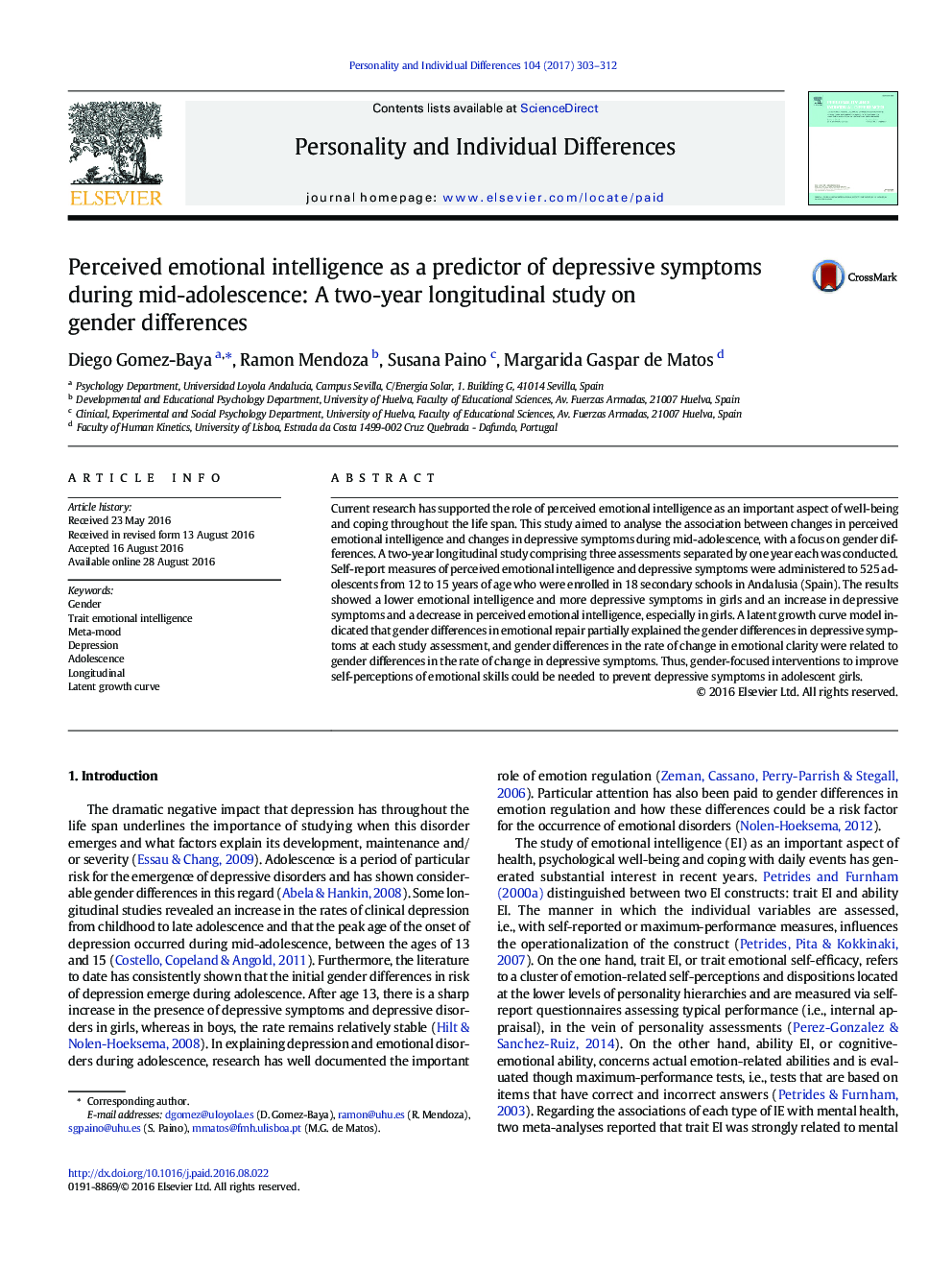| Article ID | Journal | Published Year | Pages | File Type |
|---|---|---|---|---|
| 7249499 | Personality and Individual Differences | 2017 | 10 Pages |
Abstract
Current research has supported the role of perceived emotional intelligence as an important aspect of well-being and coping throughout the life span. This study aimed to analyse the association between changes in perceived emotional intelligence and changes in depressive symptoms during mid-adolescence, with a focus on gender differences. A two-year longitudinal study comprising three assessments separated by one year each was conducted. Self-report measures of perceived emotional intelligence and depressive symptoms were administered to 525 adolescents from 12 to 15Â years of age who were enrolled in 18 secondary schools in Andalusia (Spain). The results showed a lower emotional intelligence and more depressive symptoms in girls and an increase in depressive symptoms and a decrease in perceived emotional intelligence, especially in girls. A latent growth curve model indicated that gender differences in emotional repair partially explained the gender differences in depressive symptoms at each study assessment, and gender differences in the rate of change in emotional clarity were related to gender differences in the rate of change in depressive symptoms. Thus, gender-focused interventions to improve self-perceptions of emotional skills could be needed to prevent depressive symptoms in adolescent girls.
Related Topics
Life Sciences
Neuroscience
Behavioral Neuroscience
Authors
Diego Gomez-Baya, Ramon Mendoza, Susana Paino, Margarida Gaspar de Matos,
